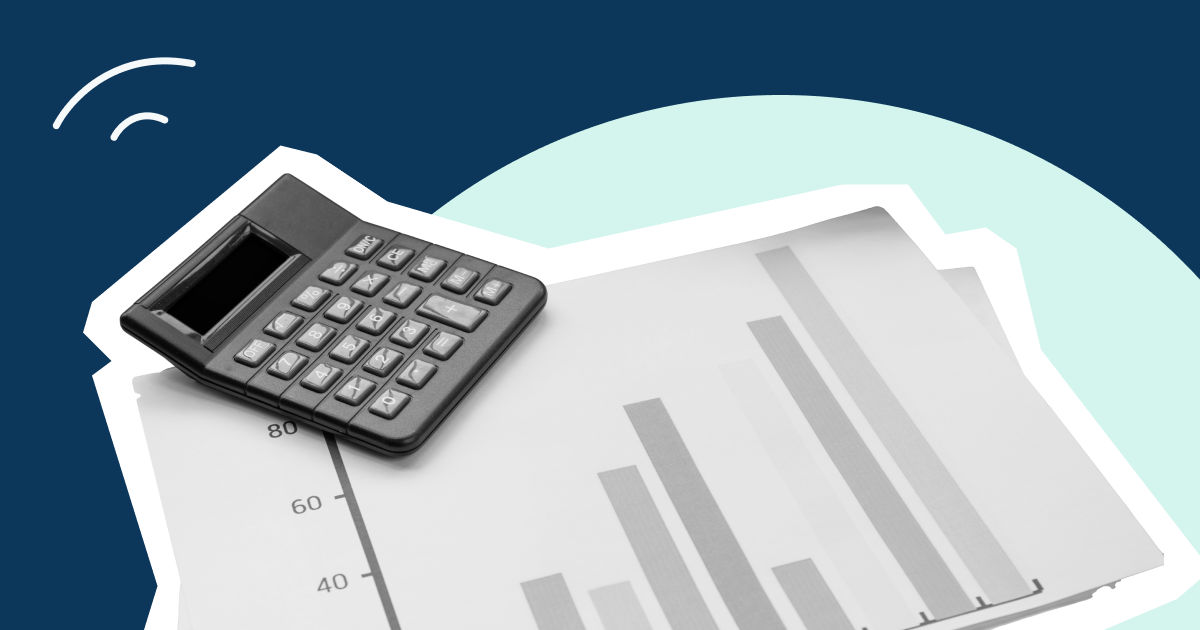Summary
What if we told you it’s possible to see into the future of your business? This is made possible by business forecasting. Whether you’re establishing a new business from scratch or looking to scale your startup to the next level, all business owners should prioritise forecasting.
What is business forecasting?
Similar to how weather forecasting works, business forecasting is all about planning ahead to minimise potential losses or failures even before they occur. This is the process of making accurate predictions on future business trends through the analysis of past and present data.
The main purpose of forecasting is to help companies make more informed business decisions through data-driven strategies. On top of that, this practice pushes founders to be more proactive than reactive. When proactive business strategies are in place, companies will be able to adapt to and anticipate any changes instead of responding out of necessity to a situation.
In this piece, we’ll take you through the basics of business forecasting—from the different types, tools available, and why it matters.
What are the benefits of forecasting for business?
1. It helps anticipate changes within the market
The moment you decide to start a business, you cannot expect that everything will go the way you planned. There are bound to be changing market conditions that you’ll need to prepare for. This includes new competition entering the market, interest and exchange rates, and emerging technologies and innovations.
With forecasting, businesses would not only be prepared and ready in the event of unforeseen changes but also learn to adapt and readjust their position to fit the current market.
2. It helps businesses set goals and plans
Just as we mentioned earlier, business forecasting is all about planning. This means looking into your business goals and figuring out how to make those plans happen.
With accurate data, it also helps founders make reasonable and measurable goals at the same time. We know that sky’s the limit, but we also need to be realistic when it comes to achieving our goals
3. It helps businesses with budgeting
Estimating your financial needs is key to a successful business. With insights on potential trends and changes, businesses can make informed financial decisions on where to allocate their budget and areas to cut down on.
By estimating the amount of income and revenue that can be generated in the future based on past and current data, this is a cost-effective and insightful way for companies to see whether they are headed in the right direction
4. It helps you learn from your mistakes
Not everything about running a business is smooth sailing. Common challenges you may face include ineffective cash flow management, weak business strategies, failure to meet customer demands, and so on. Reflecting on your past performance and business missteps allows you to use it as a reference point for what you should do instead, moving forward.
Eventually, your forecasts would gradually improve and your company would be able to cultivate a healthy culture of self-evaluation within the business.
Forecasting tools for business owners
If you’re looking for solutions that can help you create more accurate and effective forecasts, these two forecasting tools can help you with that.
1. Customer Relationship Management (CRM)
Customer Relationship Management (CRM) is a software system that helps business owners to manage and improve all aspects of their business relationships—from their current to potential customers.
Most, if not all, CRM solutions have a built-in integrated forecasting feature. From customer purchase history, potential purchases, to customer inquiries, your CRM system gives you access to real-time insights and data that can be used to create accurate sales forecasts.
With this unique technology, companies and their sales teams can identify new leads, improve customer services, and streamline processes, ultimately leading to increased profitability as a whole.
2. Business Intelligence (BI)
While CRMs are more customer-centric, Business Intelligence (BI) software focuses on the business as a whole. Most companies would tap into their transactional data to create their forecasts from there. However, this process is likely to be time-consuming and inaccurate from the number of files you’d have to rifle through.
With a business intelligence system, companies can create more precise forecasts in a shorter amount of time with the accurate data provided. All you have to do is access the central dashboard and all the information you will need is right at your fingertips.
5 best business forecasting methods
1. General Forecasting
This forecasting technique is just like how it sounds. General forecasting can be applied for businesses across all sectors and industries and looks at one’s business trajectory moving forward. This involves analysing a myriad of external factors that could potentially affect the way you run your business.
While this method can be used by anyone and everyone, general forecasting is most effective for businesses that operate in countries with geopolitical risks, declining economies, and major technological shifts.
2. Sales Forecasting
A sales forecast involves predicting future sales driven by a product or service within a certain time. Depending on your business needs, this could be measured in various cycles including daily, weekly, monthly, or even annually.
Sales-driven businesses will benefit most from this method as it looks into the future needs for different areas such as capital, inventory, resources, and investments.
For businesses with external investors or shareholders, make sure you carry out your forecasting with the highest degree of accuracy for them to see the estimated growth of your company, which would reinstill their confidence in your business.
3. Revenue Forecasting
Think of revenue forecasting as a broader term for sales forecasting. Instead of just predicting the amount of money generated from a product or service, this method predicts the total sales of a company over a specific time period.
This also includes the income generated through non-sales activities including the sale of assets and investments.
4. Capital Forecasting
The main purpose of capital forecasting is to predict the available capital for future events based on a company’s assets, liabilities, cash flow estimates, and liquid capital; among many other things.
This will pave the way for accurate and informed financial decisions that will benefit the company as a whole.
To put it into context, this is often used by companies who are in the growth stage in their journey and require cash for business activities such as hiring, acquisition, and investment opportunities.
5. Demand Forecasting
One that often goes together with sales forecasting is demand forecasting. This forecasting method predicts future market and customer demand for a product or service.
Using predictive analysis of data, businesses can optimise production planning, improve their business strategies, and predict future sales—all while meeting customer expectations at the same time. Demand forecasting is most effective for new businesses in the pre-launch stage or companies with plans on entering a new market.
One of the areas that demand forecasting can benefit businesses are through short to medium term plans including inventory management, supply and production planning, as well as contract manufacturing.
Tap into forecasting for business success
From finding the right tools and software to allocating time with the entire team, business forecasting may sound like a lot of work. But once you reap the benefits, it’ll be worth it in the long run.
Not only will this provide a comprehensive overview of what your business will look like, but it will also reveal the steps you need to take in order to get there.
Best of luck!










%201.webp)


.webp)